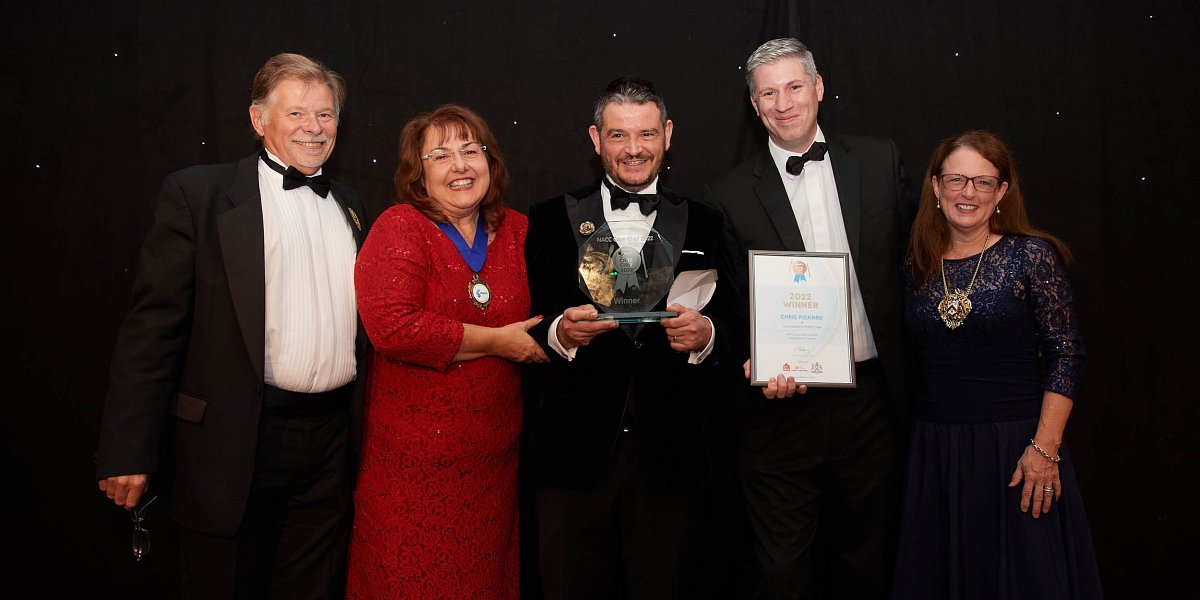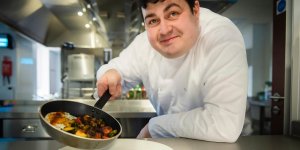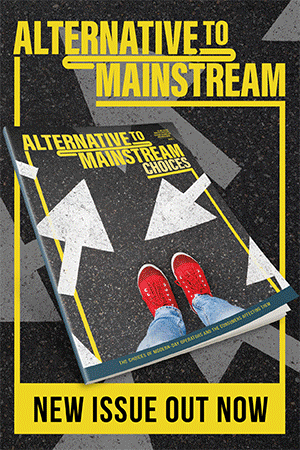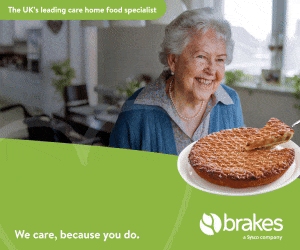Chef focus: Chris Pickard at Four Seasons Health Care
Lauren Fitchett meets Chris Pickard, the National Association of Care Catering’s Care Chef of the Year 2022

It’s fair to say Chris Pickard’s first foray into cooking competitions has got off to a good start. Having entered the National Association of Care Catering’s (NACC) prestigious Care Chef of the Year contest earlier this year, competing in a regional heat and national final, he was crowned its winner last month.
Judges said he excelled across the board, impressing the panel with his menu of chicken ballotine with pistachio and basil stuffing, swede fondant and pea and spinach purée with smoked pepper and tomato sauce, followed by a dessert of banana and pecan frangipane tart with maple syrup crème fraîche.
It was partly, Pickard says, an opportunity to give his cooking skills a new challenge – as regional craft trainer for Four Seasons Health Care, his day-to-day focuses on the International Dysphagia Diet Standardisation Initiative (IDDSI), shaping the operator’s approach to textured and modified diets and inspiring chefs to be innovative in their dishes.
“I’m finding that there is still outdated information out there,” he explains. “So it’s about awareness and upskilling chefs. I have come across chefs outside the group where I talk about what I do and they’ll say ‘so your job is to purée food’. It’s not – It’s about creating meals of a variety of consistencies. It’s about understanding the importance of the IDDSI framework, the different food particle sizes and testing methods that need to be done. We also need to understand the importance of hydration by offering the correct thickness of drinks, making sure our residents get the same diet and experience as everyone else. It’s about dining with dignity.”
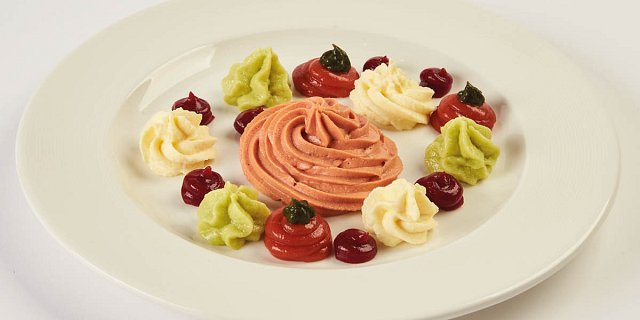
A Level 4 IDDSI ham and egg salad
He says care catering as a whole had “upped its game” in recent years, but that, with an official IDDSI qualification yet to be developed (there are courses available), it hadn’t necessarily translated to an understanding of the intricacies of modified diets. And with the sector welcoming more chefs from hospitality backgrounds, his education will be essential going forward.
“We get chefs from hotel backgrounds who can cook great quality food,” he says, "but they hadn’t realised how many elements they’d need to think about in care, such as fortification and offering modified snacks such as biscuits, cakes and fruits.”
As care catering has evolved, so too has the thought given to modified diets. “When I first started in care it was a case of everything being blended up in a bowl,” he says. “As the years have passed, there have been things like moulds introduced, which can look great, though I’m not a fan. Instead, we promote the likes of piping bags to replicate dishes, such as puréed peas or carrots. We want to shape it to look as similar to the dish of the day as possible – that’s what we aspire to, but it’s baby steps.”
Most dishes can be modified, Pickard says, and for those that prove tricky it is a case of “thinking outside the box” – using alternative ingredients which are as close to what you are replacing, without going too far off-piste what’s on the menu. His creative thinking and determination to show what’s possible inspired his menu for the NACC contest. Though he knew time constraints would make creating a Level 4 dish impossible, he included ingredients traditionally avoided in IDDSI, removing the elements which make them a risk.
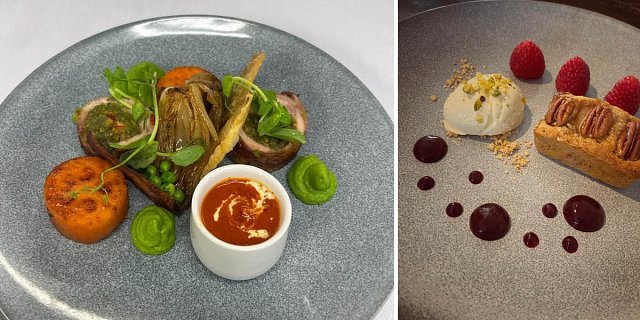
Pickard's NACC competition-winning dishes
“People say to avoid peas and peppers because they have skins, but I wanted to show that when you remove the problematic aspects there’s no reason that residents [with modified diets] can’t have the same as everyone else,” he explains. “You can get the ingredients in there, you just have to think outside the box and take away those issues.”
Competitive by nature, Pickard says the contest was a chance to get back in the kitchen again, but admits he was a “bag of nerves” when it came to the final. “It’s excitement, but nerves – you want your name to be called,” he says. “I would have been happy to come second or third, but this is a great feeling.”
Pickard is clearly settled in his work and passionate about making a difference, but it took him a while to find his niche. As a teenager, he initially followed friends into training to join the Armed Forces, before deciding to set his own course and explore catering (“I remembered getting good feedback on a lasagne I cooked in food technology – I thought ‘maybe that’s my skill’”). His career started in a care home, followed by stints in gastro pubs and bistros and a break in which he studied plumbing. But the lure of the kitchen called, and he returned to coffee shops and canteens, supplementing his income with work as a peripatetic chef in healthcare, shifts which eventually led him back to full-time care catering.
Having now been in his role for two years, the spark of creativity is well alight. “I have always been interested in the scientific side of food and I have always tried to think ‘what if that was my grandad’, whether it’s cooking for a normal diet or modified,” he says. “It’s rewarding work, particularly when chefs say it’s made a difference. I have that fire in my belly again.”
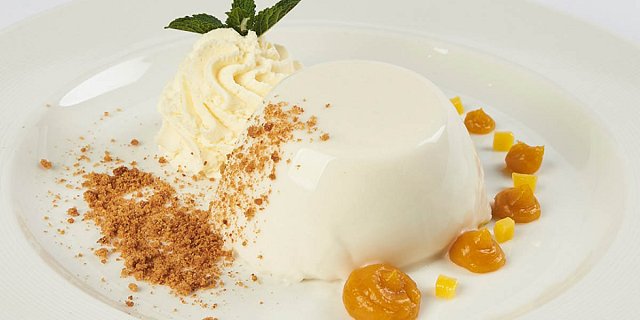 A coconut pannacotta with mango coulis and ginger crumb
A coconut pannacotta with mango coulis and ginger crumb


